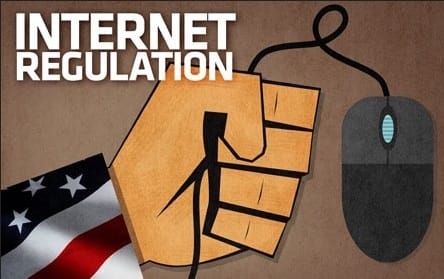The recent ruling by a U.S. appeals court has brought to a halt the Biden administration’s efforts to restore net neutrality rules that were dismantled during the previous administration. Net neutrality is the principle that internet service providers (ISPs) must treat all data on the internet equally, without discriminating or charging differently by user, content, website, platform, application, or method of communication. The court’s decision has reignited discussions surrounding the regulation of the internet and the implications for both consumers and service providers.
The backdrop of this legal battle dates back to 2017 when the Federal Communications Commission (FCC), under Chairman Ajit Pai, voted to repeal the net neutrality regulations that had been established during the Obama administration. This repeal allowed ISPs to engage in practices such as throttling, prioritizing certain content, and creating paid fast lanes for internet traffic. The move was met with significant backlash from consumer advocacy groups, tech companies, and many lawmakers who argued that it could lead to a tiered internet where access to information and services is determined by one’s ability to pay.
In response to the repeal, various states and advocacy groups sought to establish their own rules to protect net neutrality at a local level. The Biden administration, recognizing the contentious nature of this issue and its importance to a broad swath of the electorate, made it a priority to restore net neutrality. The administration argued that reinstating these rules would promote fairness and competition in the digital marketplace, ensuring that smaller companies and startups have the same access to consumers as larger corporations.
The appeals court’s ruling effectively blocks these efforts, stating that the Biden administration does not have the authority to unilaterally reinstate the previous regulations without going through the proper legislative channels. This decision underscores the complexities of internet regulation in the United States, where the balance of power between federal and state authorities, as well as between private companies and consumers, remains a contentious issue.
The implications of this ruling are far-reaching. For consumers, the absence of net neutrality regulations could mean a future where ISPs have the power to control access to content and services. This could lead to a scenario where larger companies can pay for preferential treatment, thereby stifling competition and innovation. Smaller companies, which may not have the resources to pay for such privileges, could find it increasingly difficult to compete in a marketplace that favors well-funded corporations.
On the other hand, ISPs argue that the lack of regulation allows for more investment in infrastructure and innovation. They contend that without the ability to manage their networks and prioritize traffic, they cannot provide the level of service that consumers expect. The debate often centers on the question of whether the internet should be treated as a public utility or whether it should operate more like a traditional marketplace, where companies can set their own rules and prices.
Advocates for net neutrality maintain that the internet has thrived under the principles of open access and equal treatment. They argue that the current ruling could lead to a fragmented internet experience, where access to information is not equally available to all users. The ongoing legal and political battles surrounding this issue reflect broader tensions in American society regarding regulation, corporate power, and consumer rights.
As the legal landscape continues to evolve, the future of net neutrality remains uncertain. The Biden administration may explore other avenues to reintroduce regulations, including potential legislative efforts or additional legal challenges. Meanwhile, consumer advocacy groups are likely to ramp up their efforts to educate the public about the implications of the court’s ruling and to mobilize support for net neutrality protections at both the state and federal levels.
In conclusion, the recent appeals court ruling blocking the Biden administration’s attempt to restore net neutrality rules serves as a pivotal moment in the ongoing debate over internet regulation in the United States. As stakeholders from various sectors weigh in on the implications of this decision, it is clear that the conversation surrounding net neutrality will continue to be a significant aspect of the broader discourse on technology, regulation, and consumer rights.



